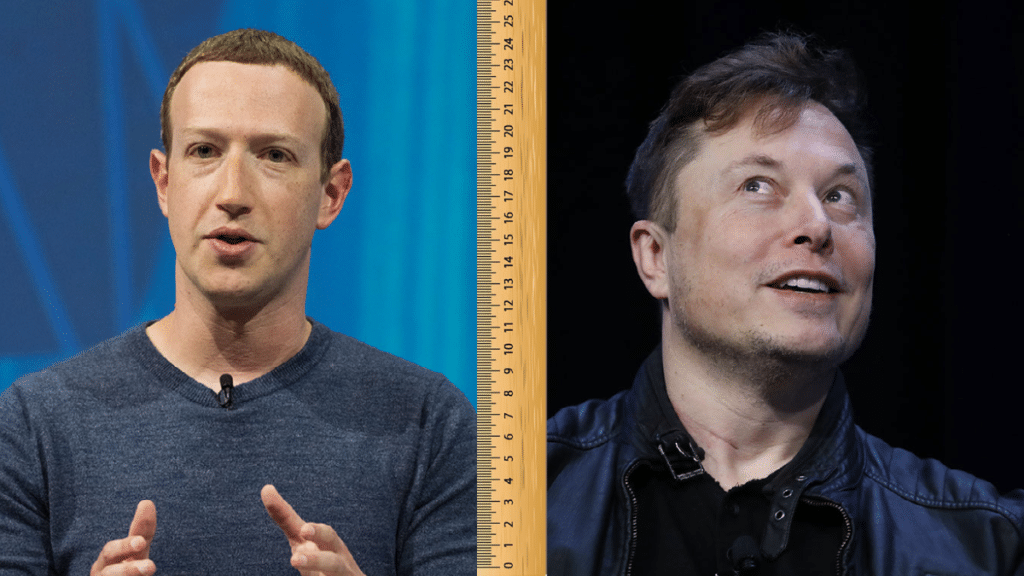Rescuing the Future from Silicon Valley
Justin Hendrix / Jul 14, 2023Justin Hendrix is CEO and Editor of Tech Policy Press. Views expressed here are his own.

This summer, two of Silicon Valley's richest and most prominent figures, Mark Zuckerberg and Elon Musk, have indulged in a contest of egos. These supposed visionaries have challenged each other to a cage match — with Musk further suggesting that they settle their quarrel with a “literal dick measuring contest.”
Even in jest, the mental image of these men– worth a combined $350 billion– comparing their penises is revolting. Yet this episode perfectly underscores the excesses and shallow preoccupations that have come to define Silicon Valley. It serves as a stark reminder of the misplaced priorities and moral bankruptcy that can emerge when power, wealth, and hubris converge, particularly in the form of white male billionaires.
The Musk-Zuckerberg spectacle, while stupid, is clarifying — it reveals the extent to which Silicon Valley has abandoned even the veneer of its purported mission of advancing humanity and solving the pressing challenges of our time. This is not the age of Silicon Valley innovation. It is the age of Silicon Valley bullshit.
There is an honesty in laying that reality bare. While readers of Tech Policy Press may be concerned about the health of democracy and the effects of technology on society, men like Musk and Zuckerberg treat such things as fundamentally no more important than their farcical feud. Musk has more than destroyed Twitter as a constructive environment for human expression and deliberation, having filled it with people who have as much impulse control and concern for others as himself. Zuckerberg, who once promised a “global community,” now wants nothing to do with news or journalism or politics; all that serious stuff is bad for his advertising business.
Behind these men’s bravado and posturing, however, lies a more troubling reality. Their behavior is fueled — even enabled — by the unchecked influence of Silicon Valley's elite. These self-appointed arbiters of progress, with their insatiable thirst for dominance, have amassed far too much power over our conceptions of the future. Yet their squabbles serve as reminders of their fallibility — and their detachment from the world they claim to improve.
Meanwhile, the damage wrought by these men remains all too real. The ways in which Silicon Valley technology has interacted worryingly with our politics and mental health, and contributed to the concentration of corporate and state power, are apparent. But instead of a sober promise to address these concerns, we appear set to see the crass spectacle of Musk and Zuckerberg vying for the title of Silicon Valley's supreme champion, with figures like Marc Andreessen cheering on the sidelines. The prospect of a physical score-settling — whether with referees or rulers — exposes the vacuity of their noble promises of progress and abundance, revealing them as nothing more than misdirection from their circus of self-aggrandizement and self-interest.
It’s possible, however, that the entire affair may be cause for optimism, at least in the long term. One possible reaction to this circus is that a wiser generation will rise in opposition to it, led by a more diverse and grounded set of individuals that seek not to merely satisfy their own egos, but to grapple with the complexities of our time, and to address humanity’s challenges with seriousness, empathy, and genuine concern. I reckon Musk wants to measure his manhood because he already knows his star is fading, and that the world will not remember him fondly. There are real leaders out there; he is not one of them.
But Silicon Valley’s tycoons will not surrender their grip on power willingly. In order to unseat them, those who seek accountability and change will have to demand that the government do its job. Unfortunately, the US Congress might be the only cage match more depressing than Musk versus Zuckerberg. Yet even on Capitol Hill, there is a new generation of leaders that appear to see through Silicon Valley’s empty promises. What’s more, much of what is necessary to contain tech’s worst excesses is already proposed, from comprehensive privacy legislation to antitrust reform. We’ll need to find lawmakers willing to act, and vote out the ones that won’t.
Regulation and the enforcement of laws will not, by themselves, be enough. We will also have to create space and preserve energy for alternative futures to emerge and be nurtured. Instead of Marc Andreessen or Sam Altman’s visions of the future, let’s figure out how to make more room for Afrofuturism and Chicano futurism and Desi futurism and feminist futures. To do this will require the movement of ideas, people, and capital. Philanthropy must play a major role, and where possible the resources of the state should be directed away from projects aligned with Silicon Valley, and towards projects that think beyond it.
None of this will be easy, particularly if we continue to reward the likes of Musk and Zuckerberg with our attention. Change may start with turning our backs on these foolish men — and toward a more sustainable and secure path. Let Musk and Zuckerberg beat each other to a pulp, if that satisfies them. The rest of us have work to do: we need to rescue the future from Silicon Valley.
Authors
